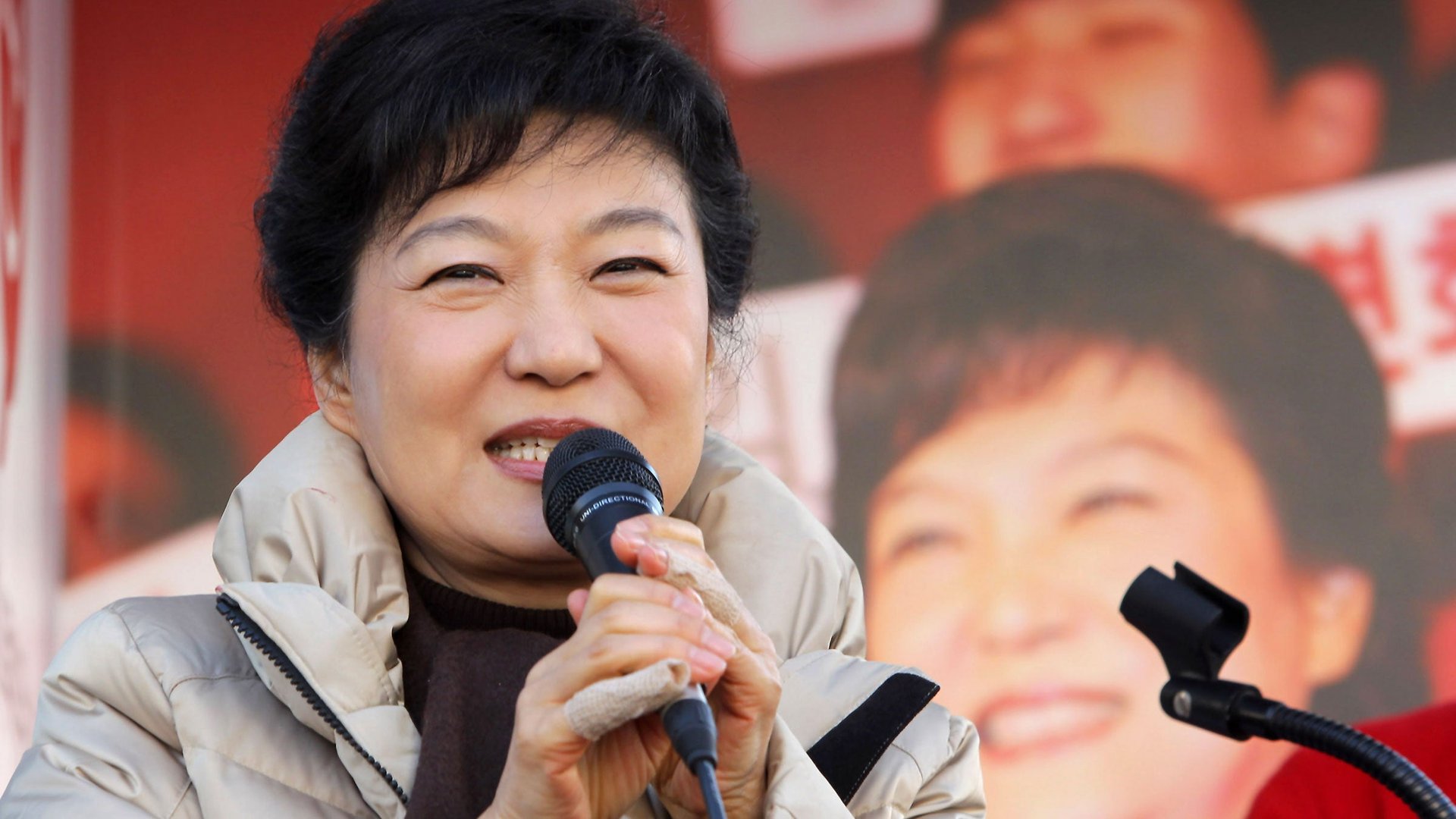5 ways South Korea’s first female president could transform Asia. No. 1: She’s the daughter of a Cold War dictator
After a tight presidential race, Park Geun-hye was announced South Korea’s new head of state today. A conservative, Park won with 51.6% of the vote and will be the country’s first female leader. The election of Park, along with changes in leadership in Japan and China will sway the matrix of politics and power in East Asia, where the three countries are the region’s most important players.


After a tight presidential race, Park Geun-hye was announced South Korea’s new head of state today. A conservative, Park won with 51.6% of the vote and will be the country’s first female leader. The election of Park, along with changes in leadership in Japan and China will sway the matrix of politics and power in East Asia, where the three countries are the region’s most important players.
Here’s how Park, 60, could affect South Korea and the region as a whole while president for five years, starting in February.
Politics of the past. Park is the daughter of a Cold War-era military dictator Park Chung-hee whose rule of 18 years after the Korean War (1950-53) still leaves sentiment in the country divided.
Keeping the chaebols and pushing a massive trade treaty. Park is expected to maintain free-market government policies and general support for the massive family-owned South Korean conglomerates whose revenues are at times larger than the country’s GDP. (Hyundai and LG are examples of these chaebols, which literally translates to ”business associations”.) Park’s father encouraged the expansion of the chaebol – pronounced “jay bol” or “chay bol” – to help industrialized the war-ravaged country in the 1960s and 1970s. Amid public discontent over their dominance in society and business, Park’s opponent campaigned for dismantling them, but Park has said doing so would bring the whole economy down. Park also supports the Trans-Pacific Partnership, a trade agreement between 11 countries, including various Asian and Latin American countries (but excluding China) that the US is pushing.
North Korea. Park has said she would negotiate with Kim Jung-Un, North Korea’s new leader but would require the hostile neighbor to the north to give up nuclear weapons first. (The two countries are still technically at war and relations have deteriorated under the current administration.) Despite the fact that North Korea launched a satellite into space, an antagonistic move the US and others see as a cover for testing ballistic technology, analysts believe Kim wants to shift the country’s priority from military build-up to economic development. An initial outstretched hand from Kim could markedly improve relations.
Personal life. Unmarried and with no children, Park has said that she will devote her life to running the country. She served as her father’s first lady in the 1970s after her mother was assassinated by a North Korean gunman. Her father was shot and killed in 1979 by the director of the Korean Central Intelligence Agency who claimed General Park was an obstacle to democracy.
Iron Lady politics. Park’s election is seen as a breakthrough for women in a country and region known for patriarchalism. South Korea ranks in the bottom third of all countries for gender equality, according to the World Economic Form, and has a gender wage gap 2.6 times the average of OECD countries. Park will be not just the first female president of South Korea but northeast Asia’s first female leader. She has cited German chancellor Angela Merkel and former British prime minister Margaret Thatcher as her role models.